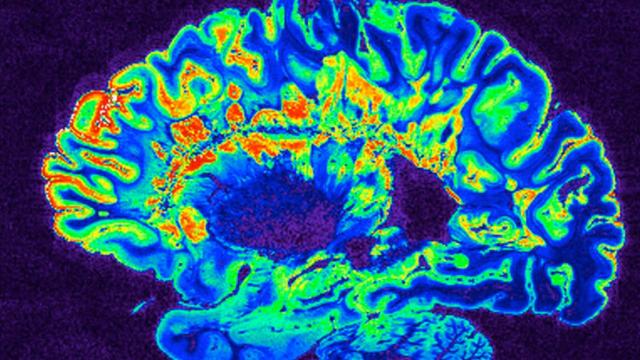New research funded by the National Institutes of Health suggests an experimental drug can slow down the brain damage caused by a form of multiple sclerosis (MS), an incurable neurological disorder that eats away at the protective coating of our nervous system. But it’s still unclear whether the drug can noticeably improve the crippling symptoms sufferers experience.
The long arms, or fibres, of most neurons are covered with something called myelin. Myelin doesn’t just protect our nerve fibres, though, it boosts the speed of the electrical signals that neurons use to communicate with one another. People with multiple sclerosis have a mutinous immune system that goes after and destroys myelin, wreaking havoc on the central nervous system.
This damage shows up as lesions and chronic inflammation that gradually shrink brain tissue. There is no clear cause of MS, though factors like infections and genetics are thought to play a role.
The symptoms of MS, which include muscle weakness, constant fatigue, and trouble walking, can be devastating but unpredictable. Most victims have an initial acute attack that lasts for a few days, then disappears. From there, people will experience flare-ups of the disease, followed by remissions of symptomless months or even years.
But around 10 to 20 per cent of MS sufferers experience a primary progressive form of the disease, meaning their symptoms continuously get worse from the start, with few — if any — periods of remission.
There are some medications available to treat the former type of the disease, known as relapsing-remitting MS. These drugs can reduce how often attacks happen, as well as their severity. But there had been little help for people with primary progressive MS for decades. In 2017, the antibody-based ocrelizumab became the first FDA approved drug for both forms of the disease.
The experimental drug, known as ibudilast, is approved in Japan as an medication for asthma and dizziness, but has never been approved in the US for any condition. It was tested out in a Phase 2 clinical trial, called the SPRINT-MS trial.
More than 250 patients with primary progressive and secondary progressive MS (a later stage of the disease that many with relapsing-remitting MS eventually develop) were randomly assigned to receive either ibudilast or a placebo. Both groups took their medication daily for nearly two years, and were routinely subjected to brain scans every six months.
These scans showed that people on ibudilast had noticeably less brain shrinkage than did those on placebo. On average, ibudilast patients had about 2.5 milliliters less brain tissue loss than the control group, or around a 50 per cent difference in the rate of brain loss.
The findings were published Thursday in the New England Journal of Medicine.
“These findings provide a glimmer of hope for people with a form of multiple sclerosis that causes long-term disability but does not have many treatment options,” said Walter J. Koroshetz, director of the National Institute of Neurological Disorders and Stroke, in a statement.
Phase 2 trials aren’t intended to definitively tell us if a drug actually works, but rather, if it’s safe for patients to use. And on that aspect, ibudilast also passed. People on the drug did experience more side-effects than the placebo, such as headache, depression, and gastrointestinal symptoms, but they were largely tolerable.
However, it’s not still known if people taking ibudilast will have any improvement in the course of their symptoms or overall brain function. Those questions will, hopefully, be answered in the near future.
“Our hope is that the benefit of ibudilast in slowing brain shrinkage will also translate to decreased progression of associated physical disabilities in a future phase 3 trial.” lead author Robert Fox, vice-chair for research at the Cleveland Clinic’s Neurological Institute in Ohio, said in a statement.
It’s estimated there’s more than two million cases of MS worldwide. And while the disease isn’t immediately fatal, people with MS are known to live seven years shorter than average, often with a much worse quality of life.
